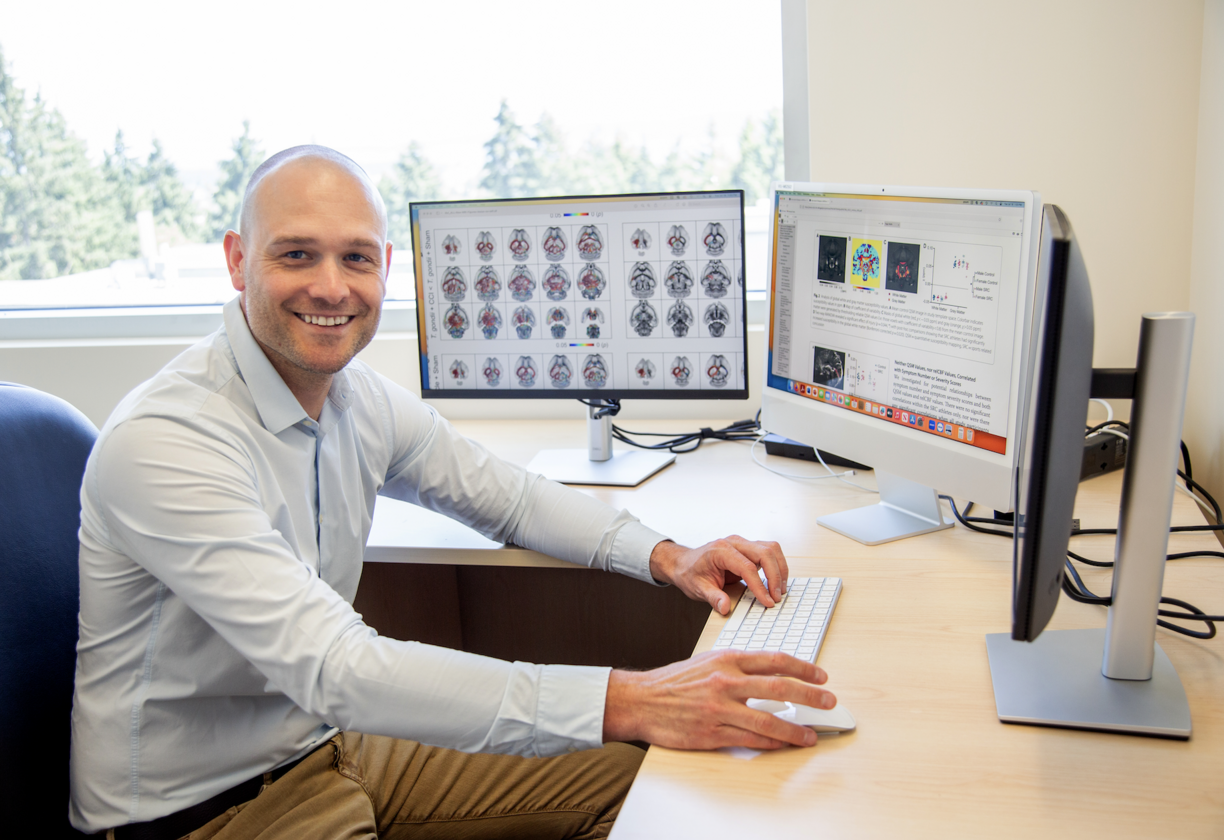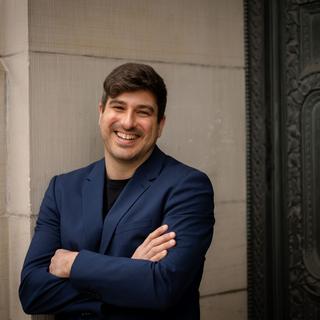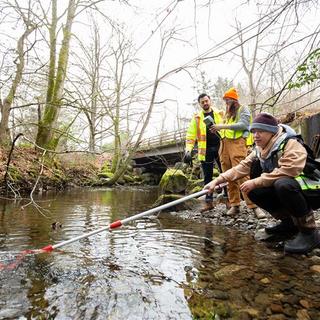Dr. Sandy Shultz is focused on improving methods to detect brain injury in domestic violence survivors.
The Centre for Trauma and Mental Health Research aims to address impacts of trauma, brain injury and mental health challenges.
Improving quality of life for people affected by trauma and supporting brain health are two main goals of a new research centre at Vancouver Island University (VIU).
Called the Centre for Trauma and Mental Health Research (CTMHR), its purpose is to develop approaches to prevent, detect and treat different forms of trauma and related mental health issues. In any given year, 1 in 5 people in Canada will experience a mental health problem or illness. The economic cost of mental illnesses to Canadian health-care and social support systems was projected at almost $80 billion in 2021.
“Trauma and related mental health problems affect people from all walks of life and can have devastating consequences,” said Dr. Sandy Shultz, the centre’s director. “Unfortunately, these are issues that are particularly prevalent in our region. Because many of these conditions are resistant to current treatment methods, it’s critical to develop new interventions as well as preventative strategies.”
The centre includes VIU researchers from health sciences, chemistry and kinesiology who have dedicated their careers to helping people recover from trauma and mental illness.
“The topics of trauma and mental health are broad and our members take different approaches to address issues within these overlapping fields,” said Shultz. “We will also engage with the community and take a patient‐oriented approach to our research programs.”
For example, Shultz leads a BC-wide research network in collaboration with Island Health focusing on brain injury due to domestic violence. The project, funded by Michael Smith Health Research BC, investigates methods to detect brain injury in these situations.
Shultz, alongside VIU Nursing Professor Dr. Shannon Dames and Adjunct Professor Dr. Pamela Kryskow, are investigating how psychedelic-assisted therapy can be used to treat post-traumatic stress disorder and brain injuries. Another example is Health Sciences and Human Services Professor Dr. Leigh Blaney’s research into helping firefighters and other first responders cope with the physical and mental effects they may experience when involved in a traumatic incident. Dr. Michael Asmussen is investigating the structure, function and neural control of the foot and ankle during movement in healthy, injured and diseased states and translating this into innovative health-care solutions.
“This new research centre will enable VIU faculty pursuing cutting-edge research related to trauma and mental health to collaborate with one another and external partners to address pressing issues in society,” said Dr. Nicole Vaugeois, Associate Vice-President of Research and Graduate Studies. “Our students will receive opportunities to learn from them and deepen their learning experience by engaging in research.”
The centre will also provide opportunities for both undergraduate and graduate students to get involved with the research, including both volunteer and paid research assistant positions. Part of the centre’s infrastructure and equipment is funded through Canada Foundation for Innovation grants awarded to Shultz.
-30-
MEDIA CONTACT:
Eric Zimmer, Communications Officer, Vancouver Island University
P: 250.618.7296 | E: Eric.Zimmer@viu.ca | X: @VIUNews
The VIU community acknowledges and thanks the Snuneymuxw, Quw’utsun, Tla’amin, Snaw-naw-as and Qualicum First Nation on whose traditional lands we teach, learn, research, live and share knowledge





